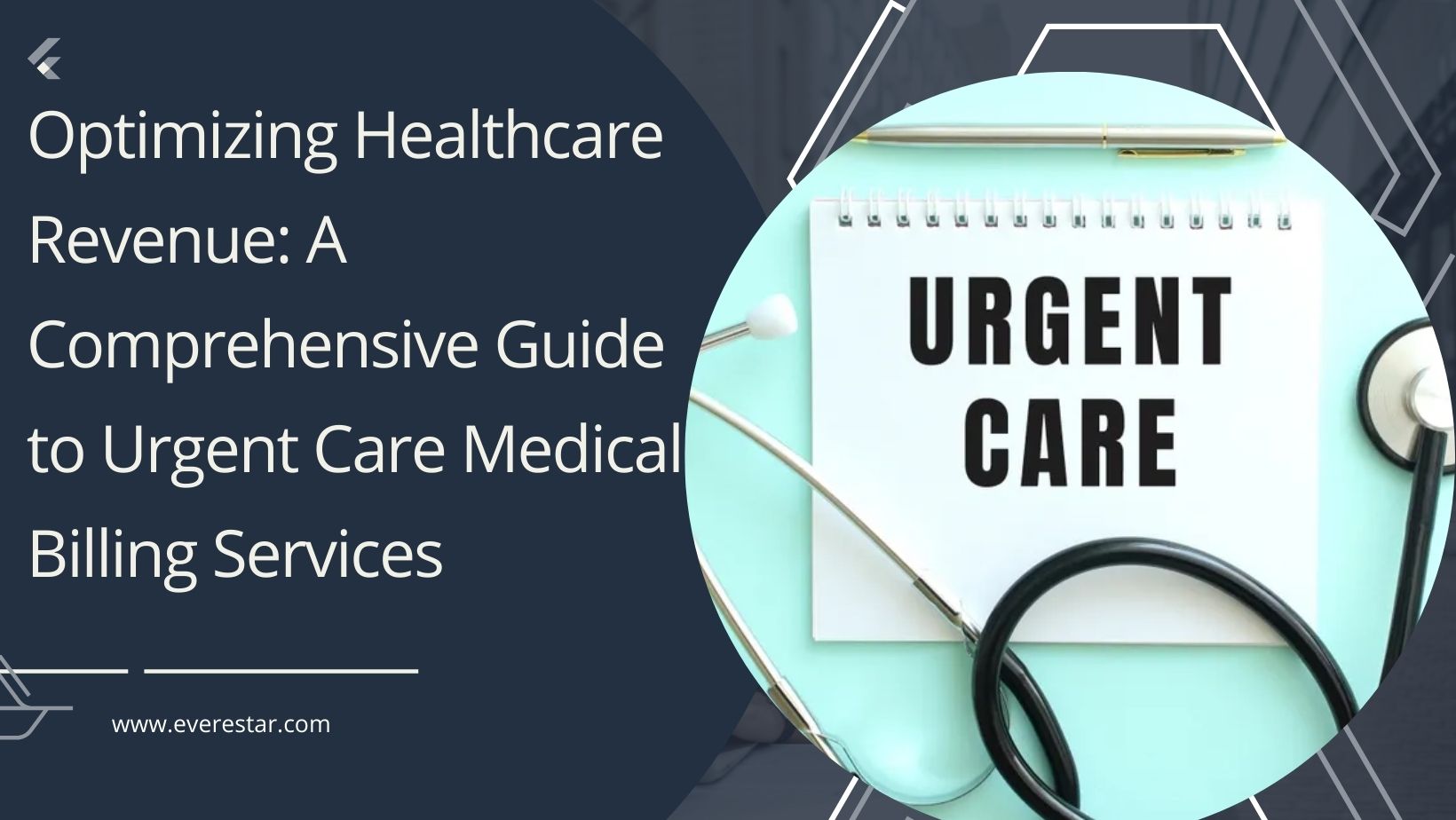In the dynamic landscape of healthcare, efficient medical billing services are crucial for the financial health of URGENT CARE facilities. As these facilities play a pivotal role in providing immediate medical attention, it is essential to streamline the billing process to ensure accurate and timely reimbursement. In this comprehensive guide, we will explore the intricacies of urgent care medical billing services, highlighting key components, challenges, and strategies for optimization.
Understanding Urgent Care Medical Billing:
Patient Registration and Insurance Verification:
- Importance of accurate patient information.
- Verification of insurance coverage to avoid claim denials.
- Electronic tools for efficient registration and verification processes.
Coding and Documentation:
- Proper coding of medical procedures and diagnoses.
- Importance of thorough documentation to support coding.
- Compliance with coding standards and regulations.
Claim Submission:
- Timely submission of claims for faster reimbursement.
- Utilization of electronic claims submission for efficiency.
- Strategies to minimize claim errors and rejections.
Denial Management:
- Common reasons for claim denials in urgent care.
- Proactive denial prevention strategies.
- Steps to efficiently manage and appeal denials.
Key Components of Urgent Care Billing Services:
Technology Integration:
- Implementation of advanced billing software.
- Integration with electronic health records (EHR) systems.
- Utilization of Artificial Intelligence (AI) for error detection and correction.
Staff Training and Education:
- Ongoing training programs for billing staff.
- Keeping staff updated on changing regulations.
- Cross-training to enhance overall efficiency.
Compliance and Regulation Adherence:
- Understanding and adherence to healthcare regulations (HIPAA, ICD-10, etc.).
- Regular audits to ensure compliance.
- Implementing internal controls for data security.
Patient Communication:
- Transparent communication regarding billing policies.
- Providing clear financial information to patients.
- Addressing patient inquiries and concerns promptly.
Challenges in Urgent Care Billing:
High Patient Volume:
- Dealing with large numbers of patients in a short period.
- Strategies for maintaining accuracy in a fast-paced environment.
Complex Coding Requirements:
- Addressing the complexity of urgent care coding.
- Ongoing training to keep coding staff up-to-date.
Insurance Reimbursement Variability:
- Navigating the differences in reimbursement rates among various insurance providers.
- Negotiation strategies to maximize reimbursement.
Strategies for Optimization:
Outsourcing vs. In-House Billing:
- Pros and cons of outsourcing urgent care billing services.
- Considerations for establishing an in-house billing department.
Performance Metrics and Analysis:
- Implementing key performance indicators (KPIs) for billing processes.
- Regular analysis of billing performance for continuous improvement.
Utilizing Technology for Efficiency:
- Automation of repetitive tasks.
- Implementing advanced billing software solutions.
- Integration of AI for predictive analytics.
Collaboration with Payers:
- Establishing open communication with insurance providers.
- Negotiation for fair reimbursement rates.
- Resolving billing disputes amicably.
Conclusion:
In the rapidly evolving healthcare industry, optimizing urgent care medical billing services is paramount for financial sustainability and providing quality patient care. By understanding the key components, addressing challenges, and implementing strategic optimization measures, urgent care facilities can navigate the complexities of medical billing and ensure a streamlined and efficient revenue cycle.


